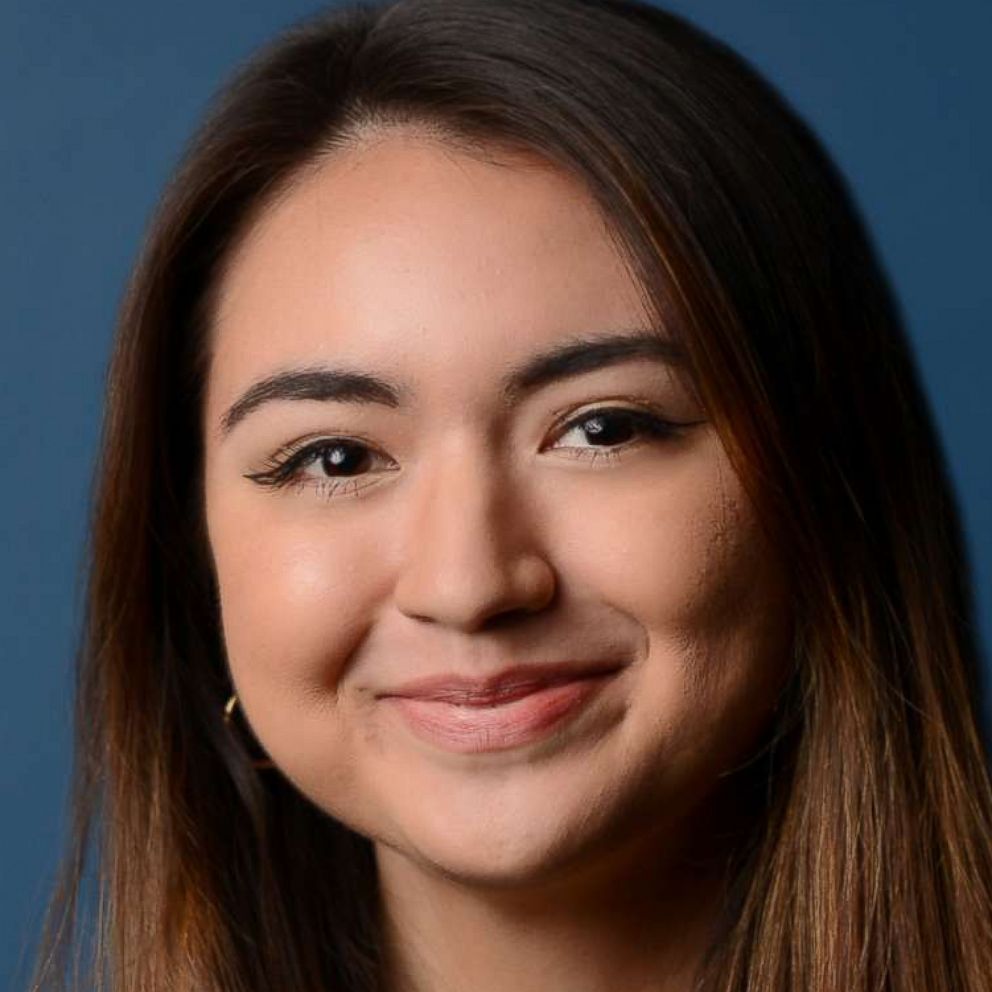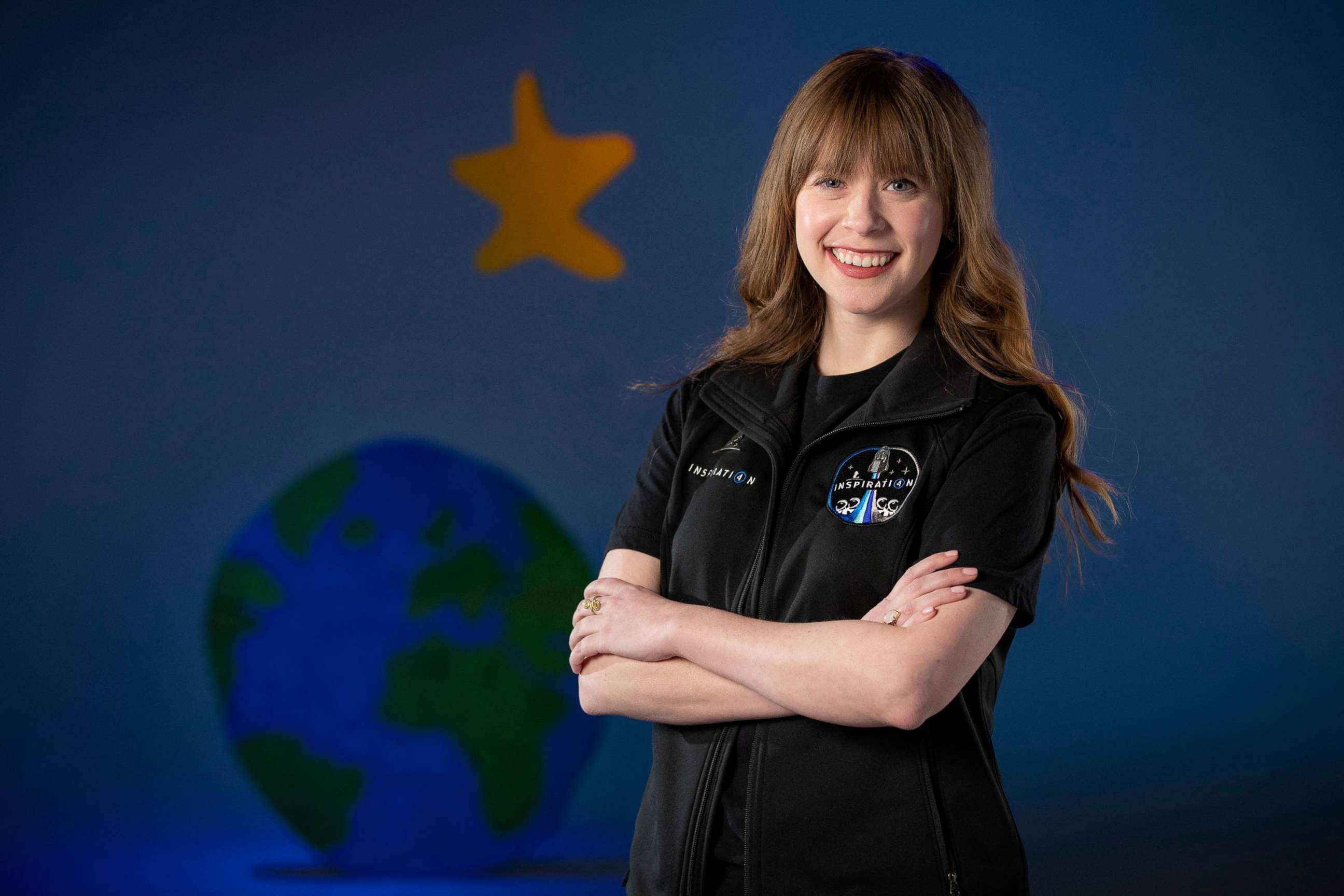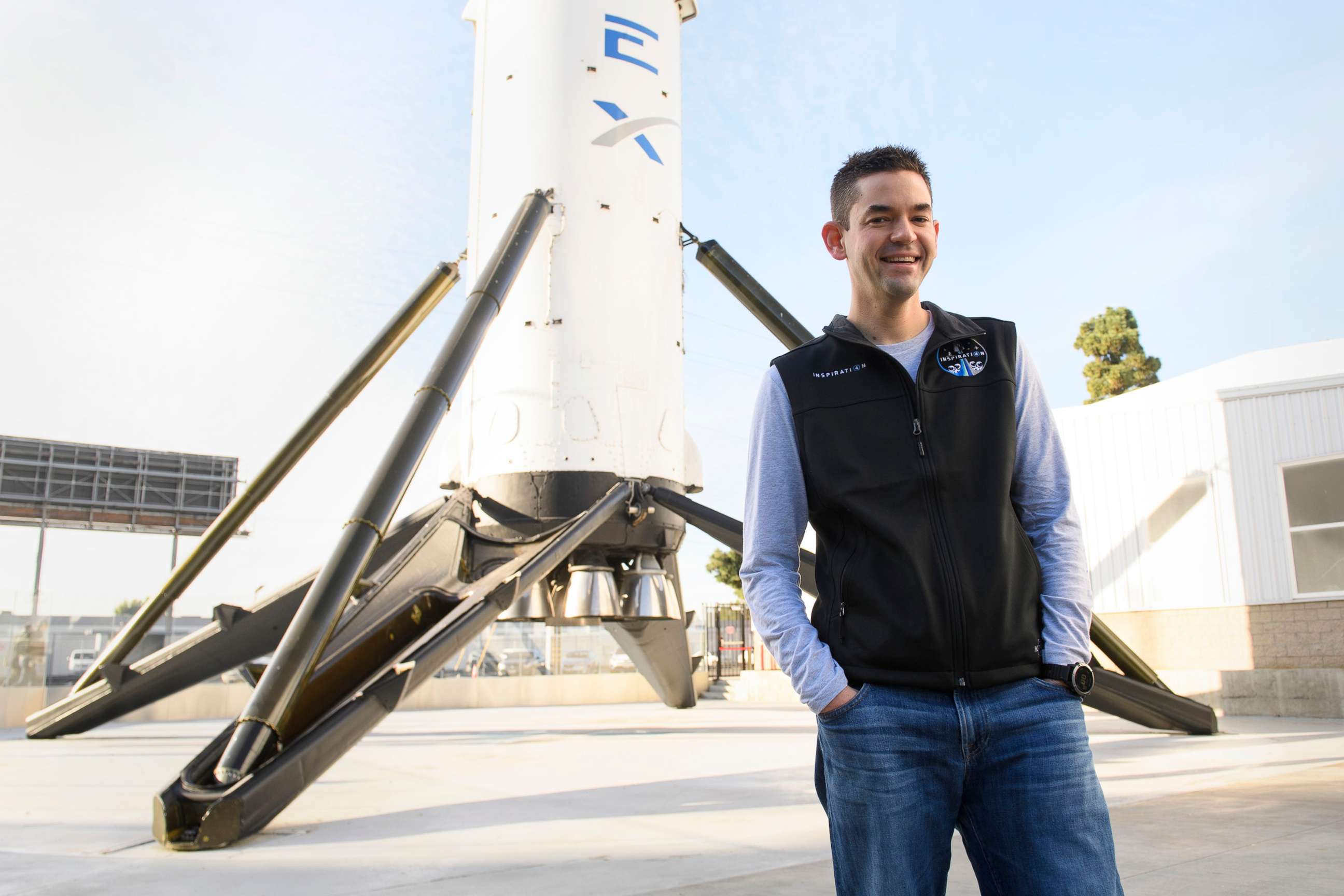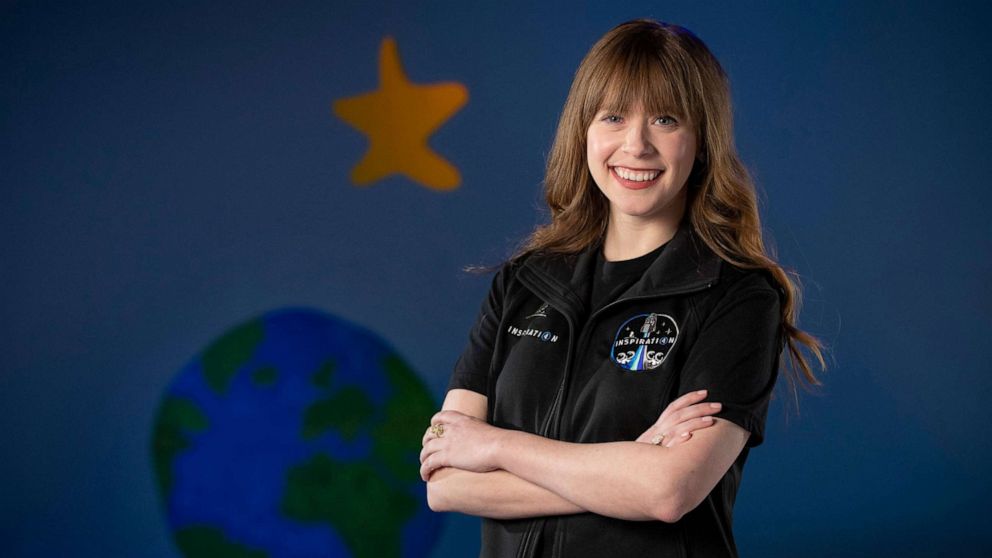29-year-old cancer survivor to become youngest American to go to space

After childhood cancer derailed her dreams of becoming a NASA astronaut, a 29-year-old Tennessee woman is set to become the youngest American to go to space via the world's first all-civilian mission to the cosmos.
Hayley Arceneaux, a physician assistant at St. Jude's Children's Research hospital, was named as one of the crew members of the upcoming Inspiration4 mission that will launch via a SpaceX rocket and be commanded by entrepreneur and part-time pilot Jared Isaacman.
One of the goals of the all-civilian mission is to support St. Jude's, and Isaacman donated two seats to the hospital: One for Arceneaux and another that is being raffled to the public as part of a fundraiser for the hospital.
"I never imagined since my diagnosis that I would be going to space," Arceneaux told ABC News. "And that is one thing that is so incredible about this mission -- it's really opening space travel out to everyone and you no longer have to be physically perfect to go to space."

Arceneaux visited NASA's headquarters in Houston when she was 10. She recalled being so impressed by the work of the space agency and seeing where the astronauts train.
"Of course I wanted to be an astronaut after that, who doesn't?" she said. "But then my world was really rocked a few months later when I was diagnosed with cancer."
Arceneaux ended up going to St. Jude's -- the same hospital where she works today -- to receive her life-saving bone cancer treatment. She said she hopes her mission will inspire the young cancer patients she works with to "dream big."
"Going through cancer treatment, it can be really difficult to look towards the future," she said. "Because you're so focused on that day -- like what appointments you have that day, what pills you have to take that day, and so it really can be difficult to think of what's next."
"I think this mission is really going to give these kids an opportunity to look forward," she added. "I really hope that it shows them that they can do absolutely anything."
Arceneaux has an internal prosthesis in one leg as a result of her bone cancer treatment. She said that over the years, her orthopedic surgeon has always put limits on what she can do down here on Earth. But in space's low-gravity environment, all of those barriers are insignificant.
"I can't go skiing, I can't go skydiving, I can't jump on a trampoline," Arceneaux said. "Going into space, I'm not limited at all. I really think this zero gravity is going to be so freeing."

Arcenaux recalled when she received the "phone call that changed my life." She said her first reaction was laughter and disbelief when she was asked if she wanted to go to space.
"And then I said, 'Yes, yes, put my name down,'" she remembered.
She said her brother and sister-in-law, who are both aerospace engineers, helped to assure her that space travel is safe.
Moreover, since beating cancer, Arcenaux said she has made it her mission to "make the most out of life and try to experience everything that I can."
"After cancer, it really made every birthday that much sweeter to this day," she said. "I'm just happy to be alive."




